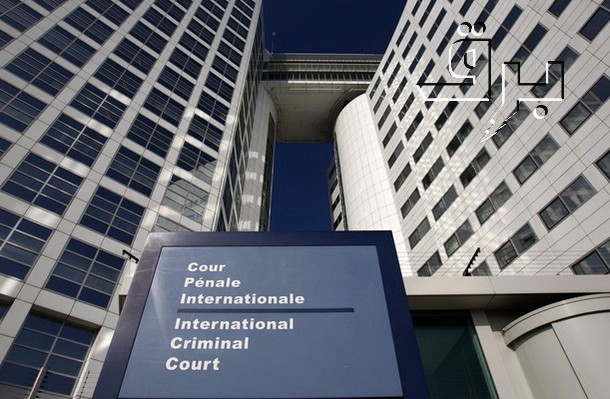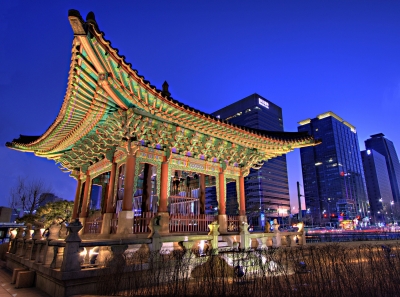On October 21, 2016, South Africa announced its intention to quit the International Criminal Court (ICC) based in The Hague. The notice came only days after Burundi’s parliament voted to leave the ICC and submitted its withdrawal to the UN, and days before Gambia announced its withdrawal.
South Africa’s departure is a major blow to the already fragile institution and will be fatal to the global fight against impunity.
Last year, South Africa announced its intent to leave the ICC after being criticized for ignoring a court order to arrest visiting Sudanese President Omar al-Bashir. In 2009, the ICC issued an arrest warrant for Mr. Bashir, accusing him of alleged war crimes in the Darfur region of Sudan where hundreds of thousands of people were killed. Last June, when Mr. Bashir attended an African Union Summit in Johannesburg, he was not only openly welcomed but permitted to leave South Africa.
As a signatory to the ICC, under Article 98 of the Rome Statute, South Africa is obliged to aid in the arrest and prosecution of any individual wanted by the international court. In June 2015, despite a local court order calling for the leader to be detained, Mr. Bashir was allowed to covertly leave the country. In violation of Article 98, South African officials directly facilitated the Sudanese leader’s escape.
For this, the South African government received major criticism from both human rights activists and the international community.
According to an announcement at a press conference by South Africa’s Justice Minister Michael Masutha, the country was withdrawing from the ICC due to what it viewed as overly-stringent obligations to the court. Mr. Masutha argued that these obligations did not allow the country to provide visiting leaders and dignitaries with diplomatic immunity. According to the justice minister, this interfered with South Africa’s ability to host leaders and therefore promote peace, stability and dialogue among its regional counterparts.
For many, this reasoning lacks merit.
South Africa’s decision to withdraw from the Rome Statute is not an isolated incident. The country’s action is a symptom of the dwindling support the court has received from the African continent in recent years.
Following the bloodshed of the Rwandan genocide, African states overwhelmingly backed the creation of an institution that could address war crimes and large-scale human rights abuses. Committed to confronting impunity, African nations were among some of the first states to become party to the ICC. Recently, however, African nations have become highly critical of the court and support for the institution has waned.
The indictments of sitting heads of state, such as Sudanese President Bashir and Kenyan President Uhuru Kenyatta, initially generated anger amongst African governments, as political leaders historically enjoyed impunity. When African leaders found themselves and their peers the subject of the ICC’s investigations, they accused the The Hague-based court of bias towards African countries.
It is undeniable that the majority of indictments have been focused on political violence and human rights abuses in Africa. Of the international court’s 10 current investigations, nine involve countries from the continent. All four individuals convicted thus far for war crimes, genocide or crimes against humanity, are Africans, and all 32 men indicted since 2002 have been Africans. These ratios have caused a number of African states to question the court’s motives, calling it ‘anti-African’, an instrument of ‘modern colonialism’ and implicitly biased. Gambia, in its withdrawal statement, made accusations of “persecution and humiliation of people of colour, especially Africans”.
That said, as Fatou Bensouda, the court’s top prosecutor, frequently has pointed out, six of the nine African cases pursued by the court were brought to the ICC by African governments. Two investigations were the result of referrals by the United Nations Security Council and only one investigation (Kenya) was the product of a court prosecutor’s own initiative. Citing the continent’s weak legal systems and the factual knowledge behind the indictments, ICC prosecutors argue there is no legitimacy in the claim that the court is biased.
South Africa’s decision to leave the ICC is a major blow to an institution that in recent years has struggled to fulfill its role as a champion of international criminal justice. The court has been criticized as inefficient and weak due to its limited jurisdiction, lack of institutional resources, and absence of powerful states from its roster.
According to Luis Moreno Ocampo, the ICC’s first prosecutor, South Africa’s withdrawal from the court will not threaten its existence, but be detrimental to its relevance in Global justice.
Given that South Africa is often looked upon as a role model in the region, especially in its participation in international organizations, it is unlikely that its exit from the ICC will occur in isolation. As David L. Bosco of Indiana University said, “there is a real chance that there will now be large-scale African withdrawals” from the ICC. Adherents like Kenya and Uganda, who have already expressed dissatisfaction with the court, are likely to soon follow suit.
Photo: The entrance of the International Criminal Court (ICC) (2011), by BRQ Network via Flickr. Licensed Under CC BY 2.0.
Disclaimer: Any views or opinions expressed in articles are solely those of the authors and do not necessarily represent the views of the NATO Association of Canada.




